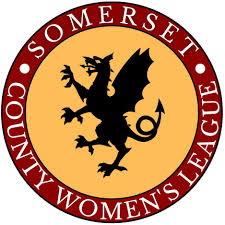The Glorious History and Enduring Legacy of S.L. Benfica-In the heart of Lisbon, Portugal, lies a football club that embodies the spirit of the nation, boasting a rich history, an unwavering fanbase, and a legacy of success. Sport Lisboa e Benfica, commonly known as S.L. Benfica, stands as one of Europe’s most storied football clubs, revered for its achievements on the pitch and its cultural significance off it. From humble beginnings to becoming a powerhouse in Portuguese and European football, Benfica’s journey is a testament to the passion, dedication, and resilience of its players, supporters, and management.
Origins and Early Years:
The roots of S.L. Benfica traces back to September 28, 1904, when a group of young men gathered to form a football club in the backstreets of Lisbon. Initially named “Grupo Sport Lisboa,” the club aimed to provide a recreational outlet for the youth of the city. Led by Cosme Damião, a visionary sportsman and founding father of Benfica, the club quickly gained popularity, attracting talent and supporters from all walks of life.
The early years were challenging, with limited resources and facilities, but Benfica’s ethos of hard work and determination prevailed. In 1908, the club merged with Sport Clube de Benfica, adopting its current name, Sport Lisboa e Benfica. This union marked the beginning of a new era for the club, as it embarked on a journey of growth and success.
Rise to Prominence:
Throughout the 20th century, Benfica emerged as a dominant force in Portuguese football, clinching numerous league titles, domestic cups, and international accolades. The 1960s, in particular, witnessed the club’s golden age, as Benfica claimed two consecutive European Cup triumphs in 1961 and 1962 under the legendary leadership of coach Béla Guttmann. These historic victories cemented Benfica’s status as a European powerhouse and endeared the club to football fans worldwide.
The legacy of Eusébio, one of football’s greatest icons, also played a pivotal role in Benfica’s rise to prominence. The Mozambican-born striker, affectionately known as the “Black Panther,” mesmerized audiences with his electrifying pace, sublime skill, and prolific goal-scoring ability. Eusébio’s heroics on the pitch propelled Benfica to unprecedented success, earning him legendary status within the club and beyond.
Enduring Traditions and Cultural Impact:
Beyond its on-field achievements, S.L. Benfica holds a special place in Portuguese culture, serving as a symbol of national pride and unity. The club’s iconic stadium, Estádio da Luz, affectionately known as the “Cathedral,” stands as a beacon of sporting excellence and a gathering place for fans from all corners of the country. Matchdays at the Estádio da Luz are steeped in tradition, with passionate supporters donning the club’s colors and chanting anthems that reverberate throughout the city.
Benfica’s commitment to youth development and community outreach further enhances its cultural impact, as the club nurtures the next generation of talent and promotes social inclusion through sport. The Benfica Youth Academy, renowned for its world-class facilities and coaching staff, has produced a myriad of talented players who have gone on to represent the club and the national team with distinction.
Challenges and Triumphs:
Despite its illustrious history, S.L. Benfica has encountered its fair share of challenges, both on and off the pitch. Financial constraints, managerial changes, and fierce competition have tested the club’s resolve, but its resilience and determination have never wavered. In the face of adversity, Benfica has continued to uphold its values of integrity, professionalism, and commitment to excellence.
In recent years, Benfica has maintained its status as a dominant force in Portuguese football, consistently challenging for domestic honors and making its mark in European competitions. The club’s passionate fanbase remains as loyal as ever, providing unwavering support through triumphs and tribulations alike.
Looking Ahead:
As S.L. Benfica looks to the future, it remains steadfast in its pursuit of success, both on and off the pitch. With a blend of experienced veterans and promising youngsters, the club is poised to build upon its rich legacy and continue adding to its storied history. Under the guidance of visionary leadership and the unwavering support of its fans, Benfica is primed to write the next chapter in its remarkable journey, inspiring generations to come with its passion, triumphs, and enduring traditions.
FAQ
What does S.L. Benfica stand for?
S.L. Benfica stands for Sport Lisboa e Benfica. It is a Portuguese sports club based in Lisbon, known primarily for its football team but also featuring other sports departments such as basketball, handball, and futsal.
When was S.L. Benfica founded?
S.L. Benfica was founded on September 28, 1904, under the name Grupo Sport Lisboa. It later merged with Sport Clube de Benfica in 1908 to become Sport Lisboa e Benfica.
What are the club’s colors and nicknames?
The club’s colors are red and white, and it is often referred to as “As Águias” (The Eagles) due to its emblem featuring an eagle.
What is the significance of the eagle in Benfica’s identity?
The eagle is a symbol of strength, power, and nobility, reflecting the club’s values and aspirations. It has been an integral part of Benfica’s crest since its inception and is revered by fans as a symbol of pride and resilience.
Where does S.L. Benfica play its home matches?
S.L. Benfica plays its home matches at the Estádio da Luz (Stadium of Light), located in Lisbon, Portugal. The stadium, often referred to as the “Cathedral,” has a seating capacity of over 65,000 spectators and is one of the most iconic football venues in Europe.
What are some of Benfica’s notable achievements?
Benfica boasts a rich history of success, both domestically and internationally. Some of its notable achievements include winning numerous Primeira Liga titles (Portuguese League), Taca de Portugal (Portuguese Cup), Taca da Liga (League Cup), and Supertaca Candido de Oliveira (Portuguese Super Cup). Internationally, Benfica has won the UEFA Champions League/European Cup twice, in 1961 and 1962, and has also achieved success in other European competitions.
Who are some of Benfica’s legendary players?
Benfica has been home to many legendary players throughout its history. Icons such as Eusébio, considered one of the greatest footballers of all time, and players like António Simões, Mário Coluna, and Nené have left an indelible mark on the club and the sport.
In the annals of football history, few clubs command the same reverence and admiration as S.L. Benfica. From its humble beginnings to its status as a European powerhouse, Benfica’s journey is a testament to the enduring power of sport to unite, inspire, and transcend boundaries. As the club celebrates its past achievements and looks towards the future, one thing remains certain: the spirit of Benfica will continue to shine bright, lighting the way for football enthusiasts around the world.
To read more, Click here



